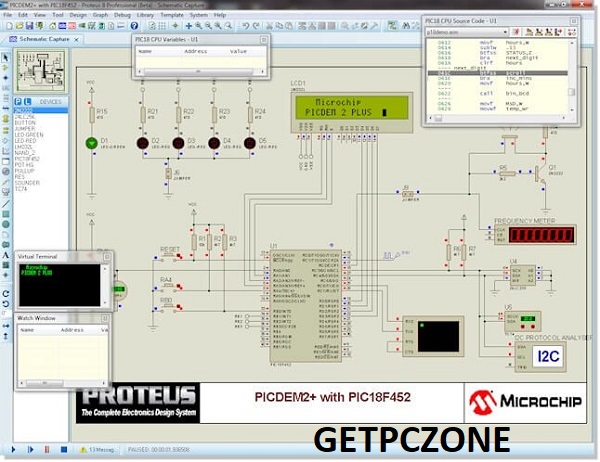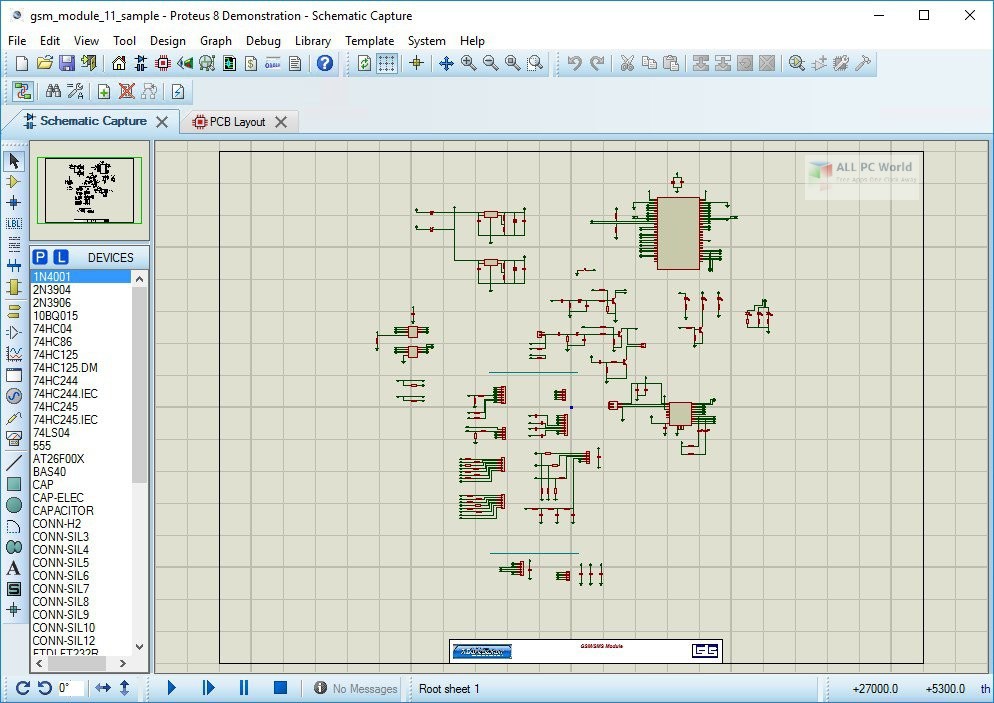

#Proteus 8 professional mode descriptions free.#Proteus 8 professional mode descriptions code.
.png)

Very significantly, there is no requirement for the edges in the test and reference copies of this control trace to occur at the same times. This is particularly relevant in micro-controller based applications where the entire firmware program may need to be re-tested after changes have been made to the source code.Ĭonformance or non-conformance is determined by comparing the test and reference results at each edge of the first trace on the graph. The idea is that a design that has been previously accepted as working can be quickly re-tested after modification in order to prove that there have been no unwanted side effects arising from the change. Post simulation you can maximise any graph, zoom in or out on the data as well as use cursors to take timing, voltage and other measurements.Ī conformance analysis is a unique quality assurance tool which compares one set of digital simulation results against another. A graph of a particular type with a given set of probes and generators is sufficient to tell ProSPICE what part of the circuit to simulate, and what type of analysis to perform. For even more control you can define your input signal in script using an EasyHDL generator.įinally you drag-and-drop one or more generators or probes on to a graph to choose what traces are displayed.

Analogue generators available include DC, Sine, Pulse, Piecewise Linear, File, Audio, Exponent and Single Frequency FM types and digital generators available include Edge, Pulse, Clock and Pattern types. Next, drag and drop Generators to stimulate the circuit and Probes at points to be monitored. You can place as many graphs as you want and can even have several graphs of the same type if you wish. Having drawn the schematic, you choose the type of circuit analysis you require (transient, frequency, noise, etc.) by placing a Graph of the appropriate type on the schematic.


 0 kommentar(er)
0 kommentar(er)
